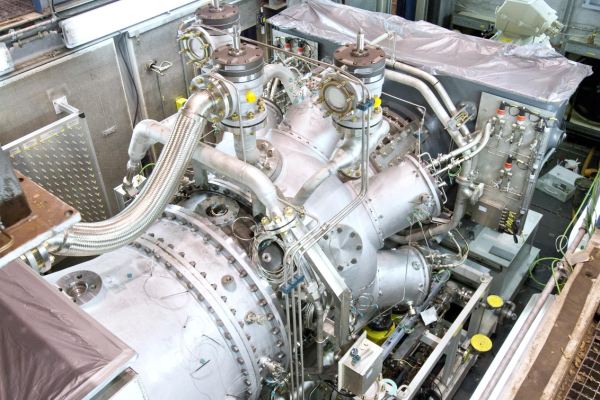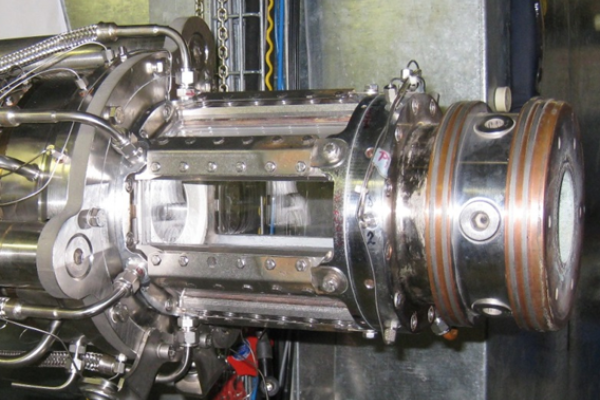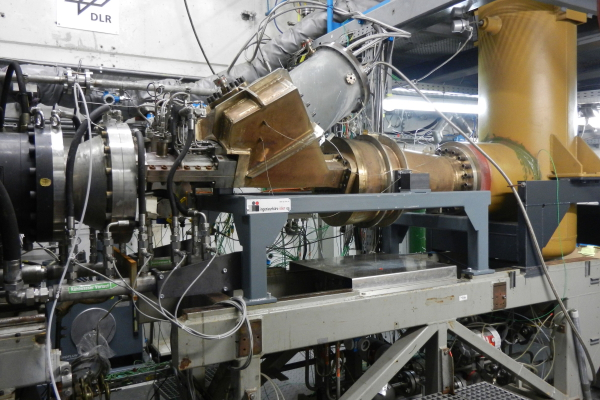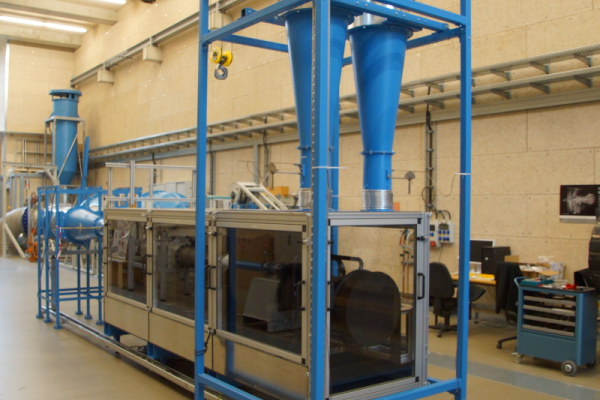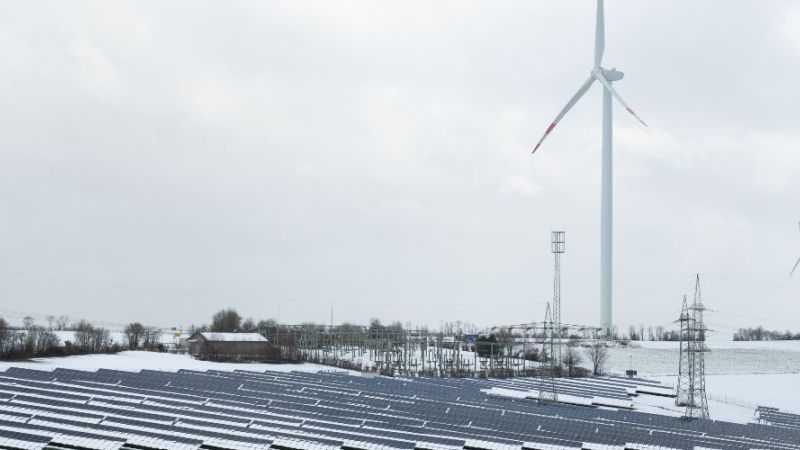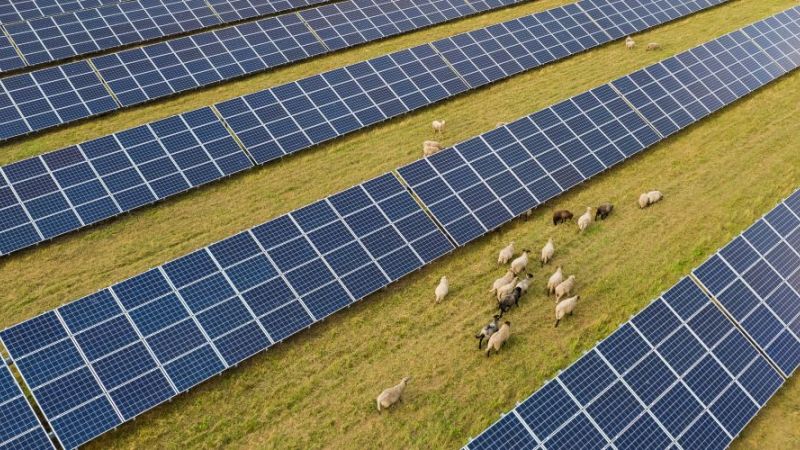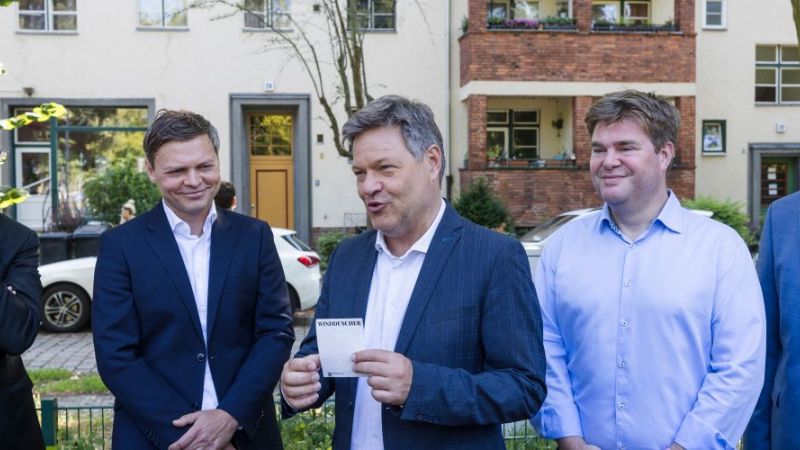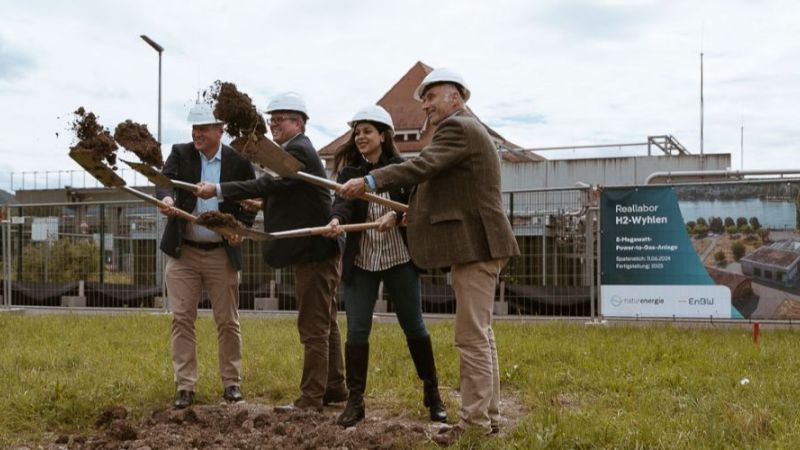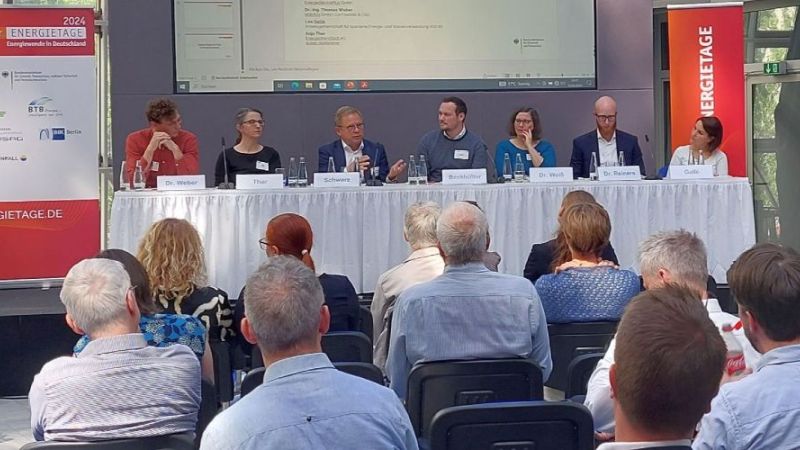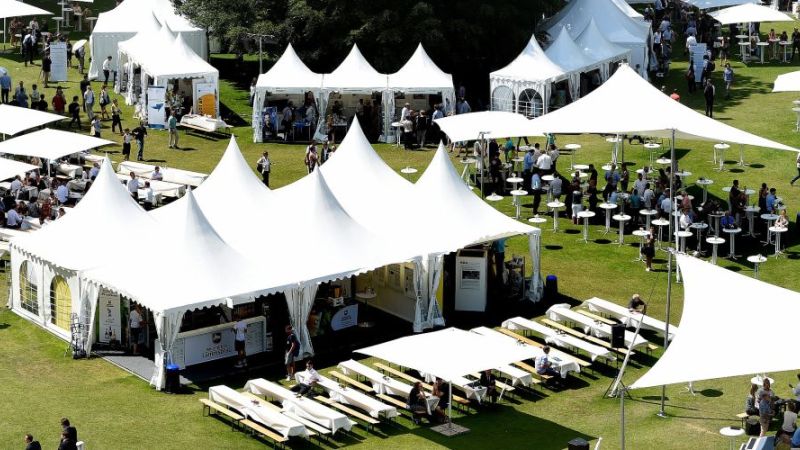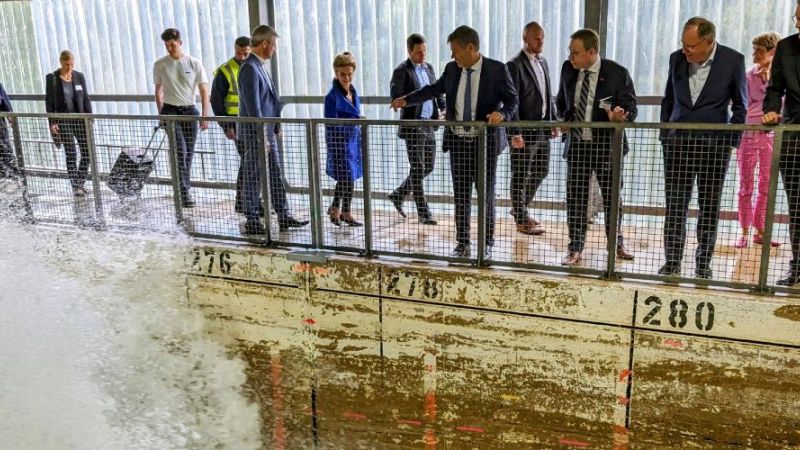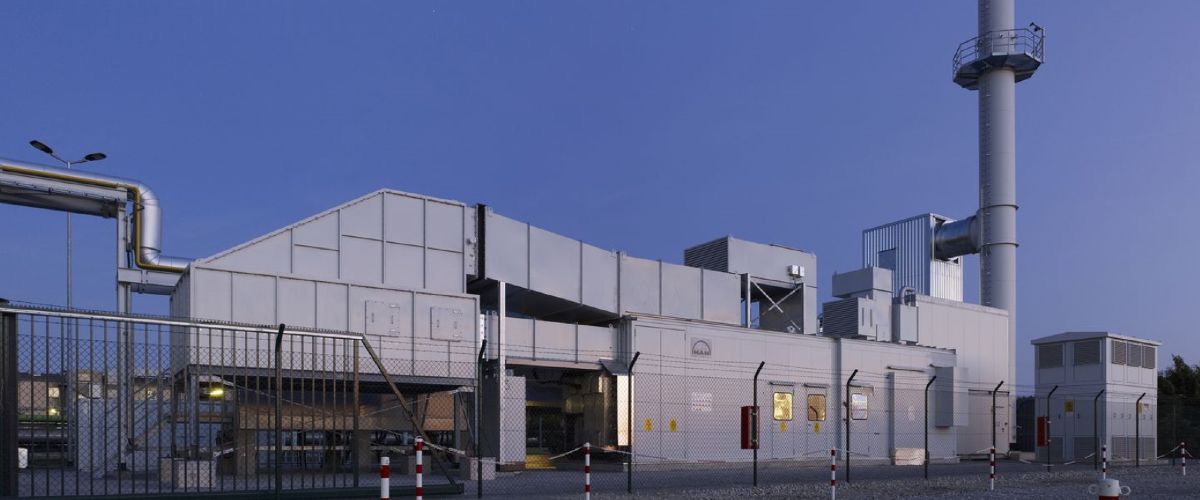 © MAN Energy Solutions
© MAN Energy Solutions
Thermal power plants
Gas turbines – a building block of the energy transition
Industrial gas turbines with an output of less than 25 megawatts are particularly suitable for decentralised energy systems. Similar to aircraft turbines, these can be started up quickly and thereby enable rapid load changes. This makes these turbines an essential component in the interaction with renewable power generation plants. In the Grüne Erde project, scientists from MAN Energy Solutions developed a new industrial gas turbine together with the project partners DLR Stuttgart and the Ruhr University Bochum. This is suitable for use in combined gas and steam turbine plants and in combined heat and power generation processes.
Project context
The infeed of renewable energies undergoes considerable fluctuations, but a secure energy provision must still be guaranteed. In order to ensure this, quickly usable reserves are necessary. A promising approach is offered by the development potential of industrial turbines for electricity generation in compact combined heat and power generation plants and combined gas and steam turbine plants, which enable rapid ramp-up times and thus have a grid-stabilising effect. The further development of gas turbine plants will require flexible modes of operation and fuels in order to ensure a sustainable and low-emission energy provision.
The project team entered into a partnership with the engine manufacturer MTU Aero Engines AG in Munich to exploit synergy effects with engine technologies. The partners used the experience of AG Turbo to set up a test stand. The AG Turbo serves as the German platform for innovative turbine research.
Research focus
The efficiency of compact gas and steam turbine plants can be significantly improved. This is where the joint project Grüne Erde and its research priorities come into play. One focus of the project partners is on thermal efficiency. The aim is to increase this to over 55 per cent and to raise it from 80 to 85 per cent in the cogeneration process. They also aimed to increase load flexibility, halve start-up times and reduce NOx emissions to below 10 ppm for 40 - 100 per cent load (single digit NOx). In addition, the plants were supposed to achieve greater fuel flexibility, which would allow, for example, larger quantities of renewably produced hydrogen to be added.
In addition to technological improvements resulting in greater load and fuel flexibility, a robust construction method for rapid load changes was also required. This is necessary to achieve the desired high fuel efficiency of 85 per cent. To achieve this, the project partners had to adapt individual components in order to increase the lifetime of the turbines.
Innovation
The scientists developed an industrial gas turbine with an output of less than 25 megawatts that can be used in compact decentralised turbine plants. They succeeded in proving that the gas turbine can be operated with up to 20 per cent of the fuel gas from synthetically produced gases. In this particular case, the fuel in question is hydrogen. Synthesis gases are produced during the chemical storage of energy and are available for reconversion with gas turbines.
Results
All components of a power plant must be optimally matched to each other in order to improve the flexibility of the plant. To achieve this, the scientists extended the existing design methods in order to be able to detect the influence of transient operation already in the development process.
The fuels are intended to burn with low emissions in the combustion chamber even at a low partial load operation of 40 per cent of full load and fast load changes. This is also desired in case of changed fuel compositions. Overall, the combustion results showed that the efficiency of the combustion process was increased, NOx emissions were reduced and combustion chamber stability was improved.
The gas turbine components developed in the "Grüne Erde" research partnership will be tested under realistic conditions on a test stand. This work is being carried out in the follow-up project GREEN BELT: "Decentralised gas turbine plants for fast reserves in combination with renewable energy conversion". With this, the researchers are taking the next step towards developing a marketable, efficient industrial gas turbine for decentralised electricity generation plants.
Practical transfer
The project partners will use the results obtained to improve the design methods for industrial gas turbines. The close integration between the further development of these processes and the findings from the test results means that the new methods can already be used for the development of series products.

